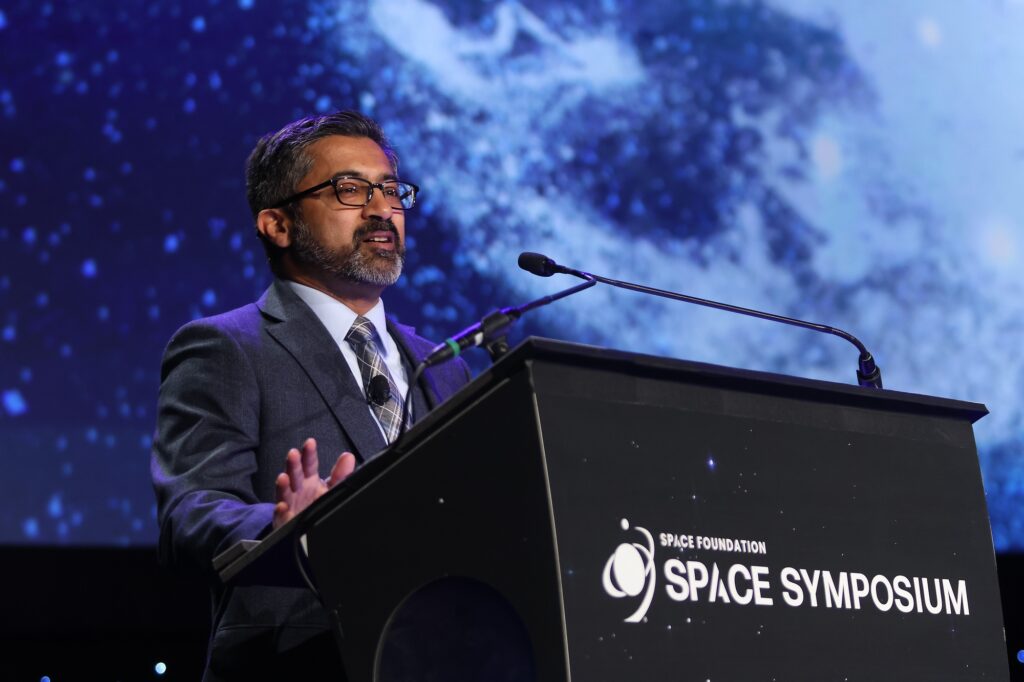COLORADO SPRINGS — The Departments of State and Commerce will begin the process this summer to place space systems on the Export Control List, potentially easing restrictions on some technologies.
speak at 39th At a space symposium on April 9, Chirag Parikh, executive director of the National Space Council, said future reviews will be made to reflect rapid changes in space capabilities since space export controls were last reformed in the early 2010s. said that it is necessary.
“It has been more than 10 years since the last major export control review of space technology,” he said. “I think the technology is evolving. I think the global capabilities in space are evolving.”
Parikh said the State Department and the Department of Commerce plan to issue advance notice of potential rulemaking in mid-June. It is possible that any technology currently on the U.S. Munitions List, governed by the International Traffic in Arms Regulations (ITAR), could be moved to the Commercial Control List under the less restrictive Export Administration Regulations (EAR). I will consider whether there is.
This notice does not imply that any technology will be transitioned from ITAR to the EAR, but it does solicit comment on which technologies should be considered. “We encourage you to provide a formal response once that is published,” he said, “and we look forward to furthering some of the work that is being done here.”
Many in the industry, including those involved in previous export control reform efforts, argue that a new review of space technology, currently under ITAR, is needed.
“As we progress, so too does technology. If we don't evolve our export control rules to cover what's happening now, we'll end up in exactly the same situation we were in 10 years ago.” said Mike Gold, Redwire's chief growth officer and a former export advocate. He spoke about regulatory reform on a panel at the FAA Commercial Space Transportation Conference in February.
Parikh said he recognizes the need to keep U.S. companies competitive through updated export controls. “We need to ensure a fair and level playing field to compete around the world and also enable partnership in the process.”
Improving export controls can also benefit international partnerships, another key theme of Parikh's speech. He said the focus this year is for agencies such as NASA, the State Department and the United States Agency for International Development (USAID) to collaborate on how to use space to assist other countries. One example is the interagency delegation he attended at the NewSpace Africa Conference in Angola earlier this month.
“It's not building space capacity. It's building international capacity using space,” he stressed. “There are so many programs across government and nonprofits that can benefit from the services you provide today, and we need to take advantage of them.”
However, he noted that the U.S. government remains interested in helping countries develop space policies and adopt best practices, including through implementation of aspects of the Artemis Accord. On national security, he said, “Let's just say there's a lot of work going on right now. There's a lot of challenges that we have to solve.”


